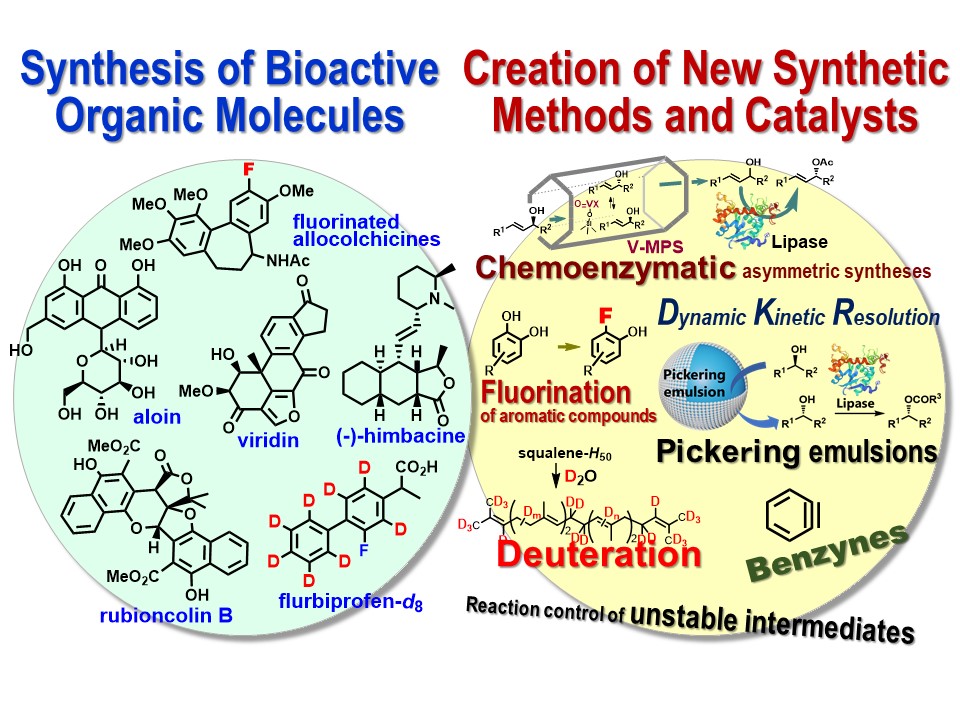Almost all medical drugs, naturally occurring or synthetic substances, are organic molecules that accurately and actively influence or control complex chemical and biochemical processes in living organisms by chemical interactions at the molecular level. With this in mind, organic chemistry holds a critical role in the design, identification, and discovery of drugs. However, the development of environmentally benign methods for producing medicines currently faces enormous challenges, hence, to accommodate and remedy some of those challenges our research group has been engaged with the following projects:
1. Synthesis of biologically active organic molecules
2. Development of enzyme-catalyzed asymmetric syntheses
3. Development of isotope-labeling methods and their application to elucidating biophenomena
4. Development of catalytic reactions using Pickering emulsions as a reaction field
5. Precise synthesis of novel functional organic molecules for drug discovery and medical treatment
Some of the noteworthy projects and results our lab has conducted and achieved are as follows:
We have been studying total syntheses of bioactive natural products and their derivatives, such as allocolchicines, aloin, viridin among others. The purposes of our total syntheses involve not only creating a process for retrieving a large supply of target compounds, but also designing new functional or bioactive molecules that would serve as potent leads for future drug discovery. For these purposes, the known synthetic methods are not always satisfactory, hence, we have focused our efforts on devising new methods to find solutions by best employing characteristic features of typical elements, transition metals, enzymes, biomass, etc. For example, the lipase/oxovanadium co-catalyzed dynamic kinetic resolution which quantitatively converts racemic alcohols into optically pure molecules has proven to provide another option for asymmetric synthesis. Also, we have developed methods for regioselective deoxyfluorination of catechols to effectively produce fluorinated molecules which are of particular interest as drug candidates.
Furthermore, to construct complex molecules in efficient and scientifically effective manners, the utilization of very reactive species, such as benzynes, as key synthetic intermediates, creation of a continuous catalytic reaction using Pickering emulsions as a reaction field and synthesis of a group of pharmaceutical backbone molecules, and reaction analysis and reaction design using high-quality computational science are some of our big projects.
Meanwhile, interdisciplinary research for pursuing pharmacological evaluations of the synthesized compounds as well as gaining vital clues to understanding their biological functions is also currently underway through cooperation with other research groups and faculties.
As a team and co-group, our lab is chiefly focused on making advances for drug discovery.
